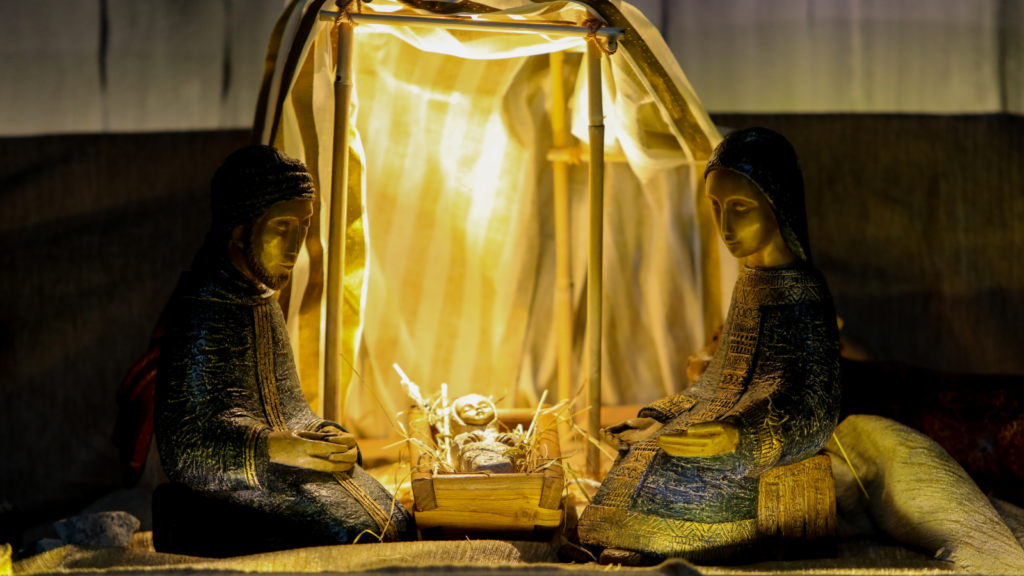
“And nothing exists except the Child”
Sometimes we might only remember a single word, sentence or scene of a movie. It’s not because the movie overall fails to inspire, but rather because a specific moment powerfully makes a lasting impression upon us.
One such scene for me comes from Of Gods and Men, the true story of a group of French Trappist monks murdered in Algeria during that country’s brutal civil war. The film was released in 2010 to critical acclaim, winning the Grand Prix at the Cannes Film Festival.
The movie begins with Algeria plunged into violence and the situation rapidly deteriorating, with the small monastic community at Tibhirine much valued by their Muslim neighbours. Militants have made a threatening visit to the monastery and the monks have begun to discuss whether they ought to leave the country or stay behind, come what may.
On Christmas Eve, the Trappists gather in the chapel and sing:
Voici la nuit,
L’heureuse nuit de Palestine,
Et rien n’existe hormis l’Enfant,
Hormis l’Enfant de vie divine :
En prenant chair de notre chair,
Dieu transformait tous nos déserts,
En Terre d’immortels printemps.
For me, it’s perhaps the most powerful moment of the entire film and the scene most etched into my memory. “This is the night, the happy night of Palestine” goes the chant. Maybe it’s because of my connections to the Holy Land, forged over more than a decade, that this moment strikes a chord. Palestine doesn’t see many happy nights, especially at the present time. This night is different, unlike others, because it’s a happy one in Palestine. How?
“And nothing exists except the Child, except the Child of divine life.” Afraid and uncertain about the future, the chant seems to break through the violence and chaos to speak to the monks in the holy night. Nothing else now exists: not the war raging outside, nor the terror which engulfs the small community, for the Child of divine life has come into the world on Christmas night and reconfigured everything. With their gazes fixed on the Christ Child, nothing more exists in this moment of prayer and song.
“By taking flesh of our flesh, God transformed all our deserts, into a land of immortal springs.” Suddenly, a new perspective has been opened. The situation has been transformed for the monks – as it has for all of us – as God enters into our broken world and takes on our fallen humanity to free it, raise it up and redeem it. A vulnerable Child lands into the chaos of the Algerian civil war – into war everywhere – to bring peace, turning deserts into springs and giving life in abundance. The darkness of the world is put to flight, as the “Child of divine life” comes to teach us divine life and give us a share in it.
It may all seem a little romantic, but this scene seems to have made a lasting impression on me. I’ve often returned to it, especially amidst the war and turmoil which besets our world – and the Middle East in particular – at this present time.
In this season of Advent, perhaps this scene can be a reminder that “nothing exists except the Child” who ought to be the focus of our attention despite the distractions all around. Everything else becomes secondary and is transformed when we put the Child at the centre of this time of year and our entire lives. It is the Child of Bethlehem, born on that happy night of Palestine, whose coming into the world changed everything and continues to do so.
This is Good News for our world: darkness is turned to light, death into life, despair into joy, affliction into hope. As Advent gets underway and leads us to Christmas in this precarious time for our world, what better gift could we hope for?
Justin Robinson OSB

